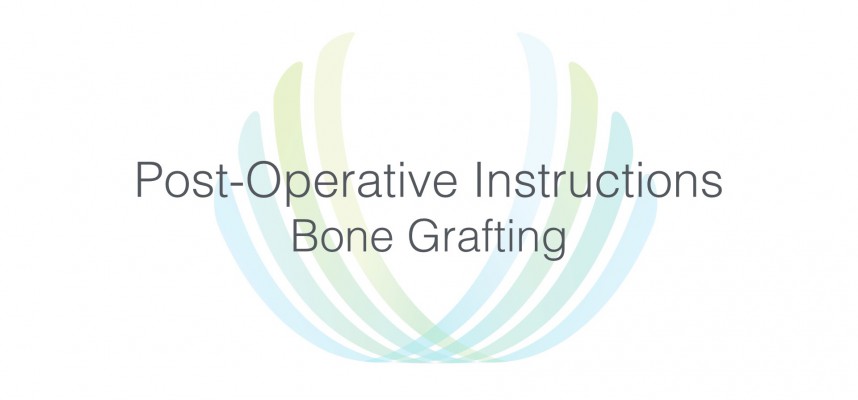Do not disturb the wound. Avoid rinsing, spitting, or touching the wound on the day of surgery. Be as gentle as you can around the bone grafting area. Try to maintain all graft material at the surgical site.
Bleeding
Some bleeding or redness in the saliva is normal for 24 hours. Excessive bleeding (your mouth fills up rapidly with blood) can be controlled by biting on a gauze pad placed directly on the bleeding wound for 30 minutes. Change the gauze pad every 30 minutes as needed. If excessive bleeding continues, please call for further instructions. (In general, use as little pressure as is needed.) Remove gauze when it is no longer needed.
Swelling
Swelling is a normal occurrence after surgery. To minimize swelling, apply an ice bag or a plastic bag or towel filled with ice on the cheek in the area of surgery. Apply the ice continuously, as much as possible, for the first 24-36 hours. Swelling generally reaches a peak in 24-36 hours, and then subsides over the next three to five days. If swelling begins to increase after the third post-operative day, please contact your doctor immediately.
Diet
Drink plenty of fluids. Avoid hot liquids or food. Soft food and liquids should be eaten on the day of surgery. Keep all solid food away from the surgical site.
Pain
You should begin taking pain medication prior to the local anesthetic wearing off. For moderate pain, ibuprofen (also known as Advil or Motrin) may be taken if you are not allergic or intolerant to non-steroidal anti-inflammatory drugs. Ibuprofen (Advil or Motrin) bought over the counter comes in 200 mg tablets: 3 tablets may be taken every six hours as needed for pain (no more than 3200 mg/24 hour period). If you are asthmatic, do not take ibuprofen unless you have tolerated it in the past. If your pain is not controlled by the ibuprofen alone, take your prescribed narcotic in addition. Ibuprofen and your prescribed narcotic can be taken together. For severe pain, the prescribed medication should be taken as directed (please note if this prescription has Tylenol [APAP] in it, do not take any other Tylenol/acetaminophen containing medications). Do not take any of the above medication if you are allergic or have been instructed by your doctor not to take it. This may include patients with liver or kidney disease. Be certain to take your pain medicines with food, this will help prevent nausea. Remember, narcotic pain medicine will impair your judgment and reflexes.
Antibiotics
Be sure to take the prescribed antibiotics as directed to help prevent infection.
Oral Hygiene
Good oral hygiene is essential to good healing. Warm salt-water rinses (teaspoon of salt in a cup of warm water) should be used at least four to five times a day, especially after meals. If you are given a prescription for Peridex Oral Rinse, rinse for 30 seconds and spit twice per day. Do not brush the two adjacent teeth on either side of the graft site for the first seven days. After seven days, you may gently brush the tooth surfaces of the adjacent teeth, as long as the bristles don’t disturb the graft site. You may floss normally, starting the day of surgery, if comfortable.
Activity
Keep physical activities to a minimum immediately following surgery. If you are exercising, throbbing, or bleeding may occur. If this occurs, you should discontinue exercising. Keep in mind that you are probably not taking normal nourishment. This may weaken you and further limit your ability to exercise.
Wearing your Prosthesis
Partial dentures, flippers, or full dentures should not be used immediately after surgery. You may wear these prostheses as soon as it is comfortable, but only if the prosthesis doesn’t touch the graft site.
